Environmental and climate protection by conviction
Protecting our environment
is a high priority for us, and we see it as our corporate responsibility to grow sustainably in harmony with the environment and society. As a technology company, Jenoptik is not in an energy-intensive sector, and produces a very small amount of emissions.
As a manufacturing company, our focus is on efficient resource management to reduce energy consumption and the ensuing greenhouse gas emissions as much as we can, using commodities and materials carefully and safely and to avoid hazardous waste as far as possible. From the very start of the development process, we paid attention to environmental aspects and the economical use of resources. Through regulated recycling and disposal, we can minimize the impact on people, the environment and nature.
The EHS department is responsible for managing and controlling environment, health and safety matters. It defines group-wide targets and framework conditions and integrates management systems into business processes. Operational implementation takes place in the divisions. Continuous review, regular internal audits and external certifications ensure that systems meet standards. Depending on their environmental relevance, selected Jenoptik companies are certified compliant with the environmental management standard ISO 14001.
Climate

Energy and emissions
Water
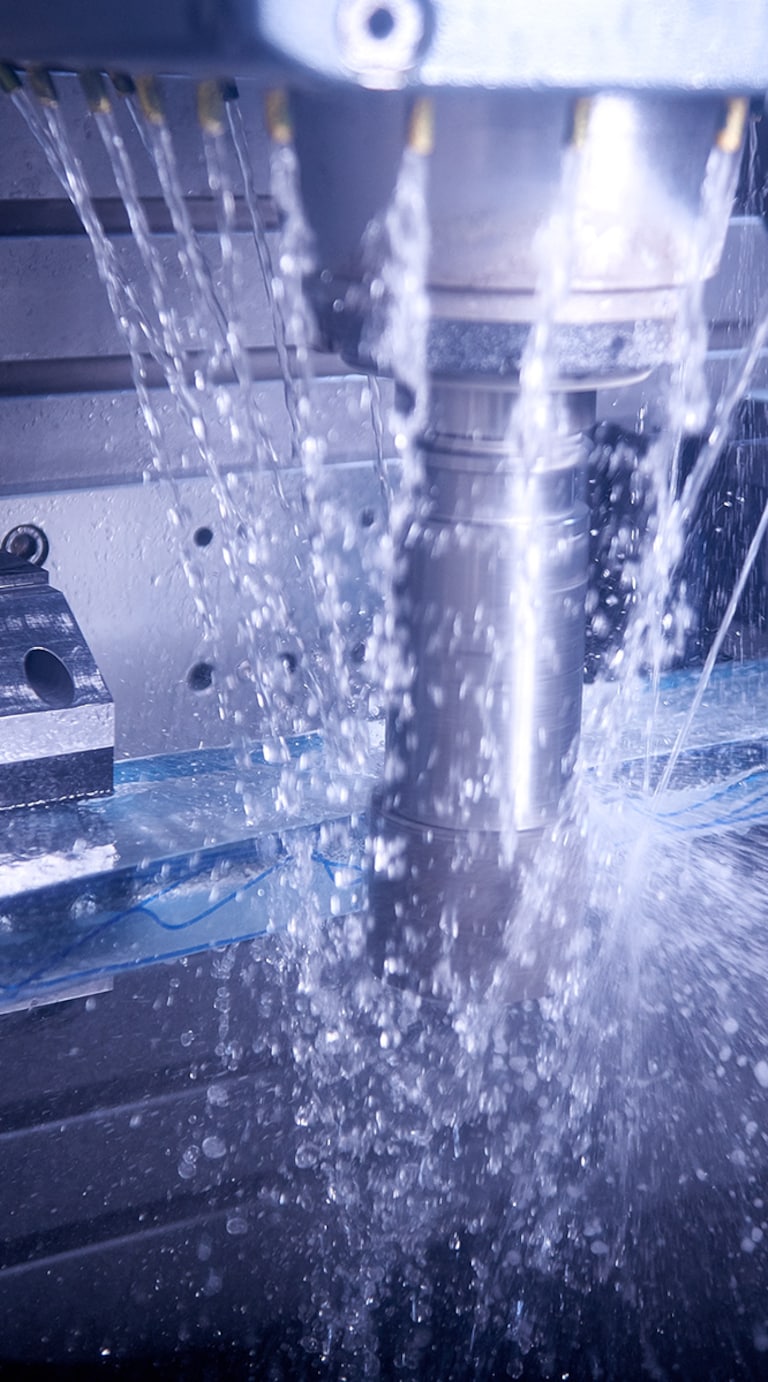
Waste
Product responsibility
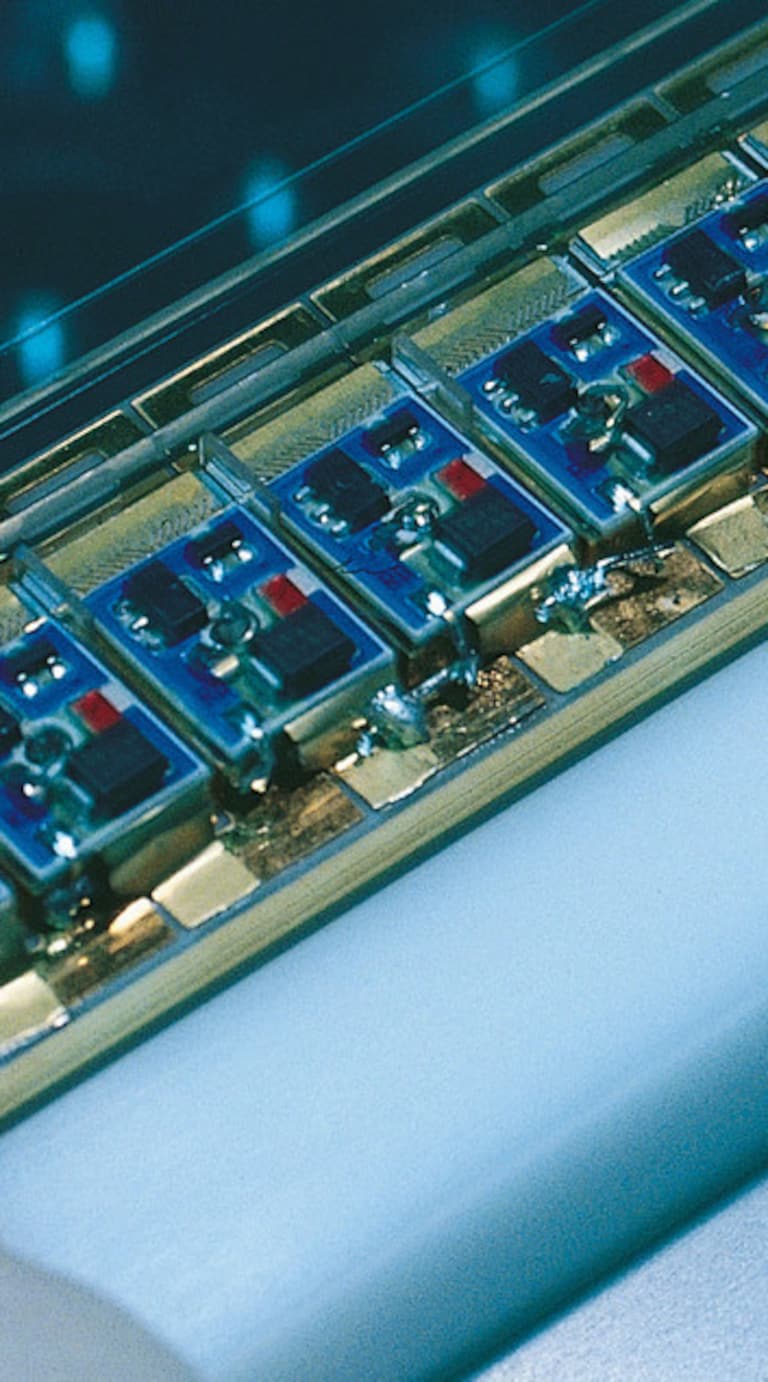
Key figures
Energy consumption
Total energy consumption by energy source (in MWh) in the year 2023
| Electricity | Gas | Wood pellets | District heating | Heating oil | Diesel/gasoline | Energy consumption | |
|---|---|---|---|---|---|---|---|
| Germany | 28,103 | 1,913 | 408 | 7,851 | 0 | 3,677 | 41,952 |
| Europe | 10,334 | 42 | 0 | 0 | 0 | 271 | 10,648 |
| Americas | 8,044 | 2,970 | 0 | 0 | 0 | 512 | 11,526 |
| Asia / Pacific | 3,351 | 0 | 0 | 0 | 0 | 0 | 3,351 |
| Total | 48,833 | 4,925 | 408 | 7,851 | 0 | 4,460 | 67,477 |
| CO2 emissions (in t) | 2,053 | 1,057 | 0 | 725 | 0 | 1,197 | 5,031 |
Energy consumption and CO2 emissions of the main Jenoptik production sites (in MWh and t)
| Energy consumption | CO2 emissions | |||
|---|---|---|---|---|
| 2023 | 2022 | 2023 | 2022 | |
| Total | 67,477 | 66,263 | 5,031 | 6,514 |
| of which Scope 1 | 2,254 | 2,010 | ||
| of which Scope 2 | 2,778* | 4,505 | ||
*In order to simplify, a country mix was used in the market-based approach for electricity of unknown origin.
- You can read more about this in our Non-Financial Report.
Water consumption
Water consumption (in m3)
| 2023 | 2022 | 2021 | |
|---|---|---|---|
| Total | 92,444 | 98,874 | 59,166 |
- You can read more about this in our Non-Financial Report.
Hazardous and non-hazardous waste
Hazardous and non-hazardous waste (in t)
| 2023 | 2022 | 2021 | |
|---|---|---|---|
| Non-hazardous waste | 1,127 | 1,305 | 1,014 |
| Paper and cardboard in t | 224 | 198 | 195 |
| Mixed packaging in t | 159 | 197 | 212 |
| Household-type commercial waste in t | 301 | 366 | 290 |
| Metals in t | 152 | 189 | 133 |
| Other non-hazardous waste in t | 292 | 356 | 185 |
| Hazardous waste | 195 | 175 | 64 |
- You can read more about this in our Non-Financial Report.
Environmental protection
Protecting the environment is a high priority for us, and we see it as our corporate responsibility to grow sustainably in harmony with the environment and society and to use resources and energy efficiently. Our products enable our customers to act in a resource-saving, efficient and sustainable manner.
Environmental management is a solid part of our corporate conduct. Our suppliers and contractors are also required to comply with the applicable regulations in order to minimize environmental risks. As a manufacturing company, our focus is on
- efficient resource management to reduce energy consumption and related greenhouse gas emissions as much as we can;
- careful and safe use of materials;
- avoiding waste as much as possible;
- ensuring environmentally friendly design and economical use of resources from the development process;
- and minimizing the impact on people, the environment and nature through regulated recycling and disposal.
For all new constructions, extensions and modernization work of production, we comply with statutory nature and environmental protection standards and sometimes exceed them.
Competition for greater sustainability
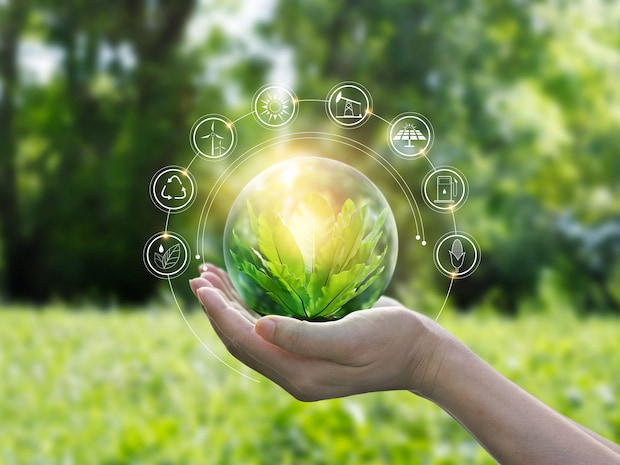
Jenoptik employees are committed to more sustainability in the company and more environmental protection not only in their direct working environment, but often through joint campaigns at their sites.
The group-wide sustainability contest, which was launched in 2020, rewards this commitment for projects implemented in the following categories:
- waste / recycling / circularity
- careful use of resources
- energy or CO2 savings
- biodiversity.
An internal jury evaluates all proposed projects after the submission deadline each year and awards prizes to the best entries.
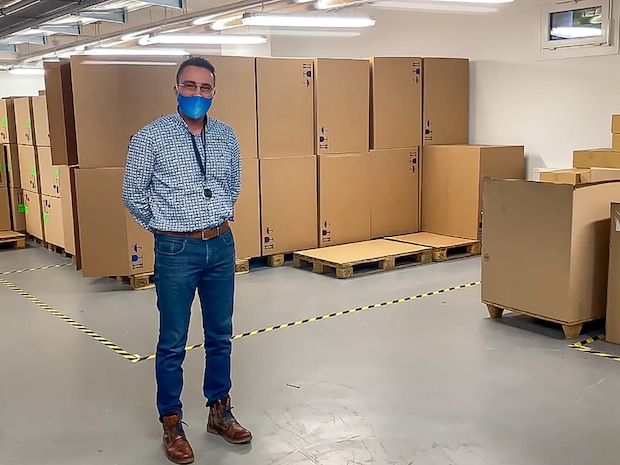
Recycling
Reuse of packaging material in sensors division: foam corners and cooling packs are fed into the recycling circuit in Dresden and used for new packaging. This reduces foam waste and hazardous waste and protects our environment. Old boxes are also recycled for consignments and even coffee grounds are used as a humus in the garden.
In addition, ...
- solvent use is reduced in the production process of semiconductor lasers in Berlin Adlershof;
- the Triptis site is transferring more plastic materials to the recycling process.
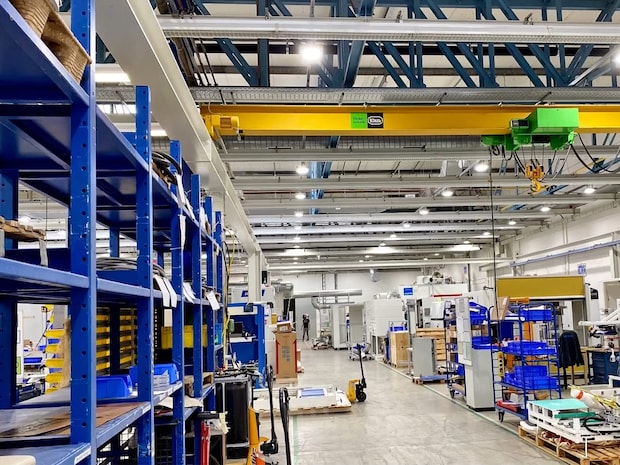
Energy savings
LED lighting is generally installed during modernizations which creates a better working environment and saves valuable resources through a longer service life. The introduction of a compressed air control system has optimized the power consumption of compressors. The increased machine service life also saves resources and reduces repair costs. The introduction and establishment of peak load management in the transformer sector has led to savings in electricity network utilization. A brief shutdown of secondary processes (e.g., room cooling) prevents power peaks that put strain on the grid. Non-essential systems (e.g., air conditioning systems, canteen ventilation systems, refrigeration systems, etc.) are adapted to work processes for the COVID-19 pandemic and weekends or are completely switched off to save electricity.

"Go Green"
Transformation of the vehicle fleet to hybrid vehicles. Reduction of CO2 emissions and pollution contribute to greater environmental protection. Fuel savings and competitive vehicle prices with lower fuel costs increase efficiency.
In addition, ...
- drinking water dispensers and reusable drinking bottles are replacing the complex water ordering process at various locations, which saves time and reduces transport costs and emissions.
Health and safety
Safety management and health protection are important fundamentals of corporate responsibility in the Jenoptik Group and important measures when it comes to the basic needs of our employees and job satisfaction. They are firmly anchored in the operating process in order to minimize risks from the working environment that can endanger employees. The prevention of accidents in everyday work, while production facilities are operating, and on work and transport routes is our top priority.
The EHS (Environment, Health and Safety) department is responsible for managing and monitoring all occupational, health and safety matters. It is the responsibility of the Chief Financial Officer and is available to all companies in an advisory capacity. It defines responsibilities, objectives and framework conditions, such as the “Environmental Health, Safety and Environment Group Policy” published in 2020. Jenoptik companies are responsible for implementing statutory provisions in all matters of occupational health and safety.
Around 10 per cent of employees at all German locations are trained as first aiders. In the interests of their health and performance, our employees undergo regular occupational medical examinations. In 2023, the number of reportable workplace and commuting accidents in Germany amounted to 11.6 per 1,000 employees (previous year: 9.9), for the Group as a whole, the ratio was 5.5 – significantly below the average of 15.9 in 2022 for the other members of the Employers’ Liability Insurance Association for Energy, Textile, Electrical and Media Products.
Pandemic management
With the help of a pandemic and hygiene plan at all locations, the spread of infection was prevented, while the work capability was maintained in all areas. Rapid and regular exchanges between all the coronavirus task forces, keeping employees informed, but in particular the rapid introduction, implementation and consistent enforcement of hygiene measures, the offer of vaccination and opportunities for home working contributed significantly to the success.
Occupational health management
Operational health at Jenoptik is managed centrally in the Corporate Center in Germany, supported by local “Health Steering Committees” for the implementation of on-site measures. These include the “Move It!” initiation project, a digital movement offer for all employees, a “healthy leadership” training offer for our managers and continuous improvement of the process for company integration management.





